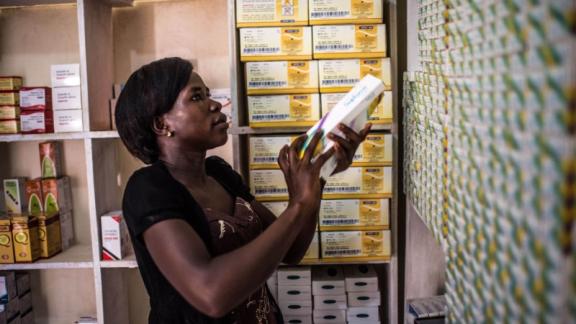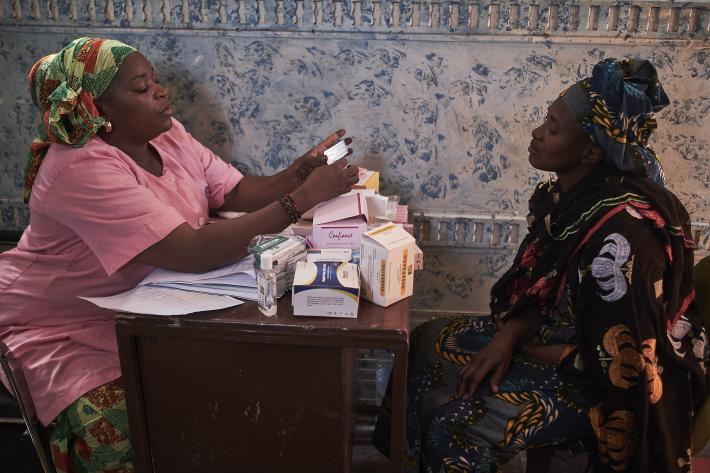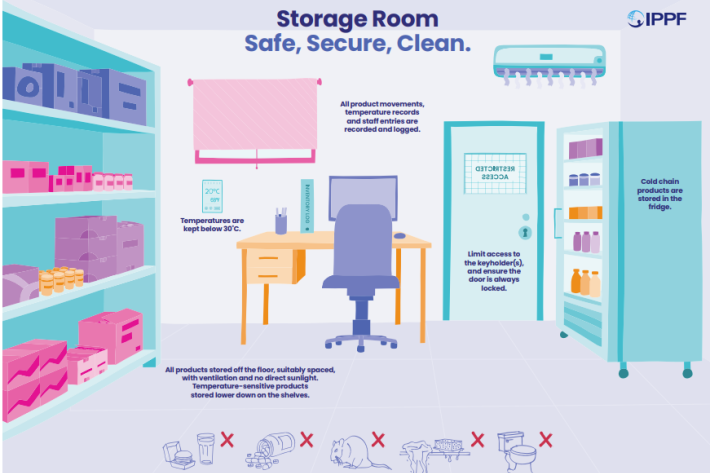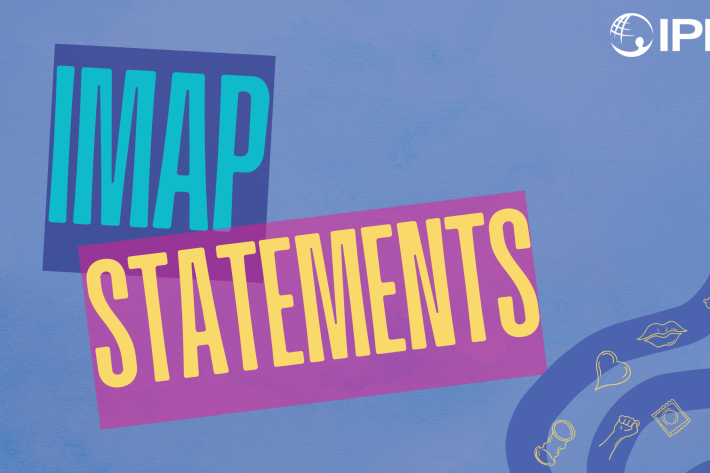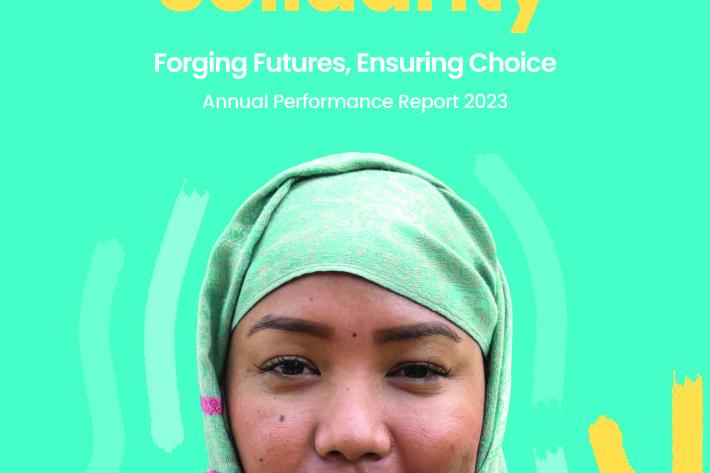Spotlight
A selection of resources from across the Federation
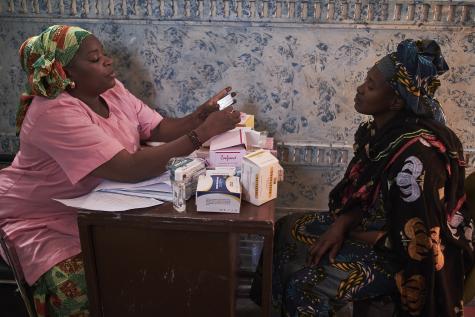
IMAP Statement on advances in emergency contraception
The purpose of this statement is to review newly published data on increasing the effectiveness of levonorgestrel emergency contraceptive pills by using pre‑coital administration or combined with a non‑steroidal anti‑inflammatory drug; the potential use of LNG‑ECP as a regular contraceptive method for infrequent sex; ulipristal acetate which is an established EC method and is now being studied combined with misoprostol for termination of early pregnancy; and the underutilization of low dose mifepristone as an EC method.
Filter our resources by:


| 02 June 2025
MA Connect
Introducing MA Connect – Your New Digital Space!We’re excited to launch MA Connect, the new name and improved platform for what was previously known as the IPPF Internal Social Media.MA Connect is a dedicated, password-protected website and mobile application designed exclusively for IPPF Member Associations and staff. It’s your space to share updates, exchange ideas, access resources, and connect with colleagues across the Federation – wherever you are in the world.With a fresh new name and enhanced features, MA Connect makes it easier than ever to:Stay informed about key Federation news and campaignsCollaborate and learn from peers across regionsShare your work and successesAccess useful tools and documentsJoin conversations on topics that matter to youAvailable on both desktop and mobile, MA Connect ensures you can engage with the IPPF community anytime, anywhere.Have a question or need support? Contact us at [email protected]’s connect, collaborate, and grow – together.
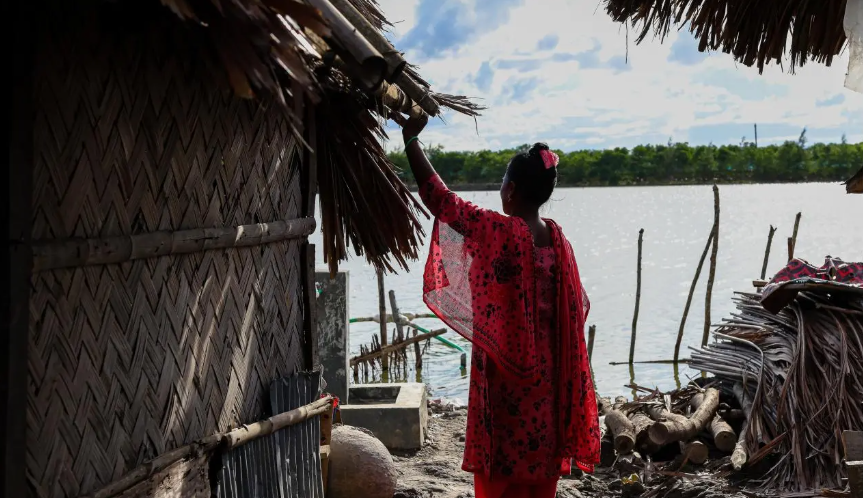
| 30 May 2025
U.S. 990 2023
Download the IPPF's 2023 "Return of Organization Exempt From Income Tax" U.S. 990 report below

| 12 May 2025
IMAP Statement on advances in emergency contraception
The purpose of this statement is to review newly published data on increasing the effectiveness of levonorgestrel emergency contraceptive pills by using pre‑coital administration or combined with a non‑steroidal anti‑inflammatory drug; the potential use of LNG‑ECP as a regular contraceptive method for infrequent sex; ulipristal acetate which is an established EC method and is now being studied combined with misoprostol for termination of early pregnancy; and the underutilization of low dose mifepristone as an EC method.
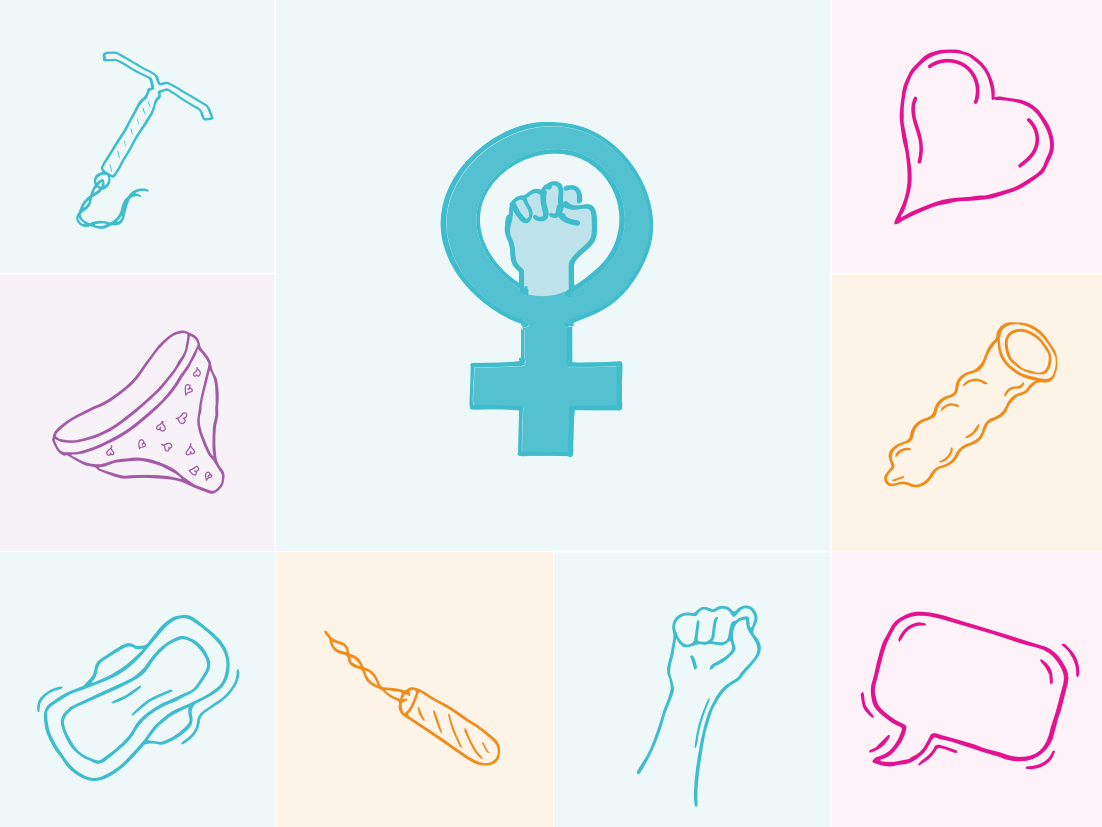
| 21 March 2025
Technical Brief: Designing and Delivering Inclusive, Rights-Based Sexual and Reproductive Healthcare to Transgender and Gender Diverse People
IPPF’s commitment to person-centred care is at the heart of its strategy, Come Together (2023–2028). We deliver quality, rights-based care to all who need it, prioritizing services for marginalized communities. This entails offering options for care that are sensitive to people’s individual needs and lived experiences. It requires healthcare providers to be aware of clients’ needs and to respect their rights. This work advances IPPF’s vision of a world where all people are free to make choices about their sexuality and well-being, free from discrimination. Inclusive sexual and reproductive healthcare delivery to transgender and gender diverse people is founded upon the principles of the rights to personal autonomy, bodily integrity and respect for clients’ confidentiality and dignity. And yet, around the world, transgender and gender diverse people face widespread stigma, discrimination, violence and exclusion in healthcare settings. A crucial aspect of providing inclusive sexual and reproductive healthcare to transgender and gender diverse people therefore relates to strengthening the capacity and attitudes of healthcare providers and clinic staff as well as understanding the needs of transgender and gender diverse people. This technical brief outlines key recommendations across several sexual and reproductive health service areas to promote access to inclusive care for transgender and gender diverse people. Our goal is to expand the choice of existing or new quality sexual and reproductive health services for transgender and gender diverse people in facility and community settings.
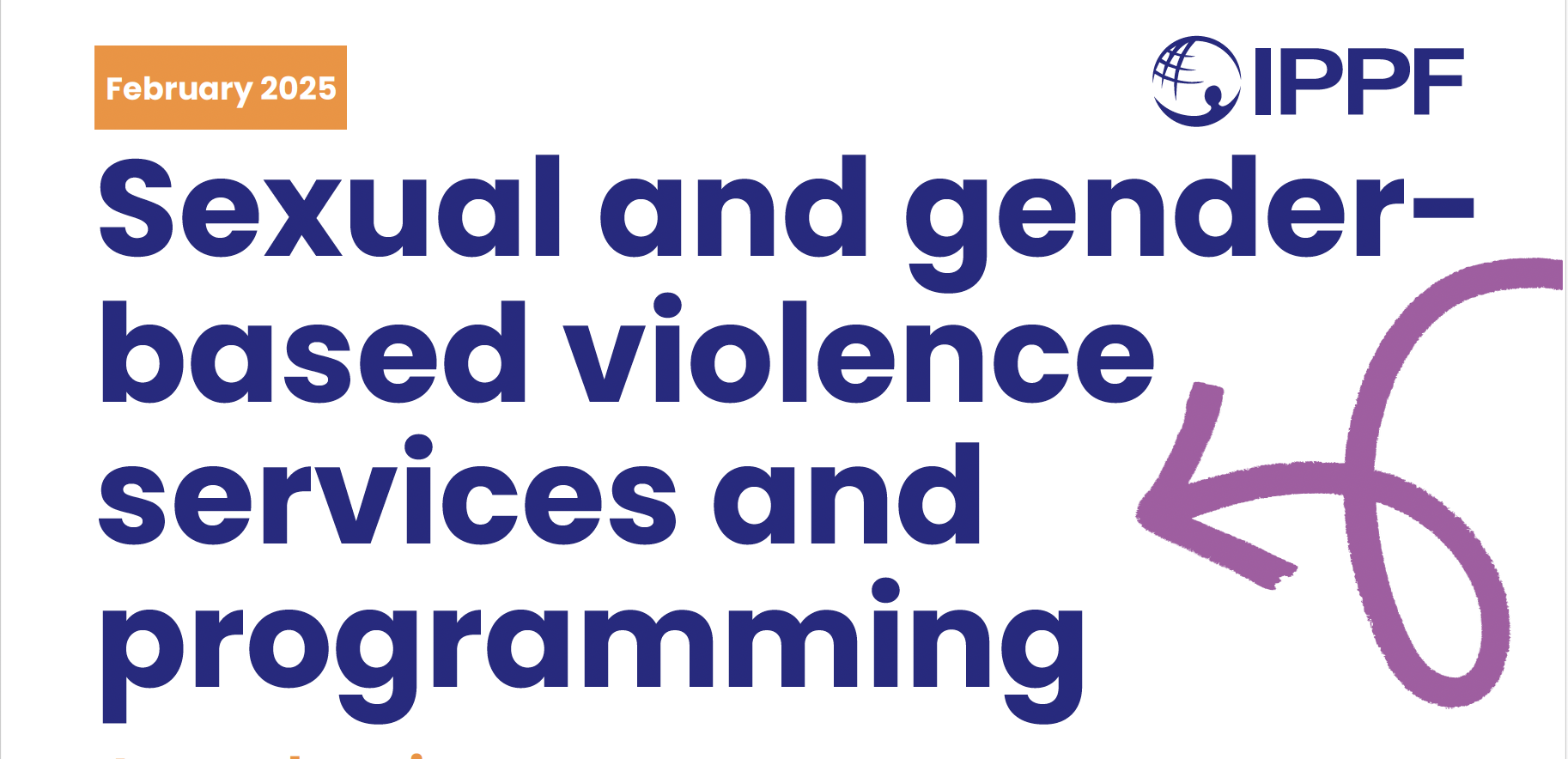
| 10 March 2025
Sexual and gender-based violence services and programming overview brief
The International Planned Parenthood Federation (IPPF) is pleased to be share this sexual and gender-based violence services and programming overview document. Globally, approximately one in three women are affected by sexual and gender-based violence (SGBV). At IPPF, we recognise that SGBV is a major public health issue, a clinical health problem, and a violation of human rights and is a key barrier to fully accessing sexual and reproductive healthcare. IPPF is dedicated to scaling up work at the community level, including in humanitarian contexts, to prevent and respond to SGBV. This document is intended to support and guide IPPF Member Associations (MAs) on how they can integrate their SGBV services and programmes throughout the four pillars of Strategy 2028 during stable times and during times of crisis.
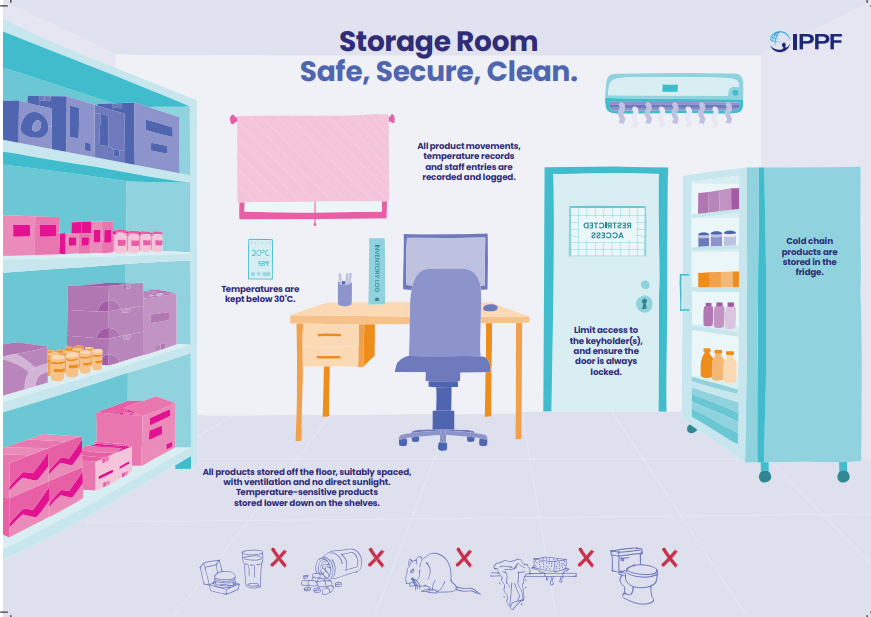
| 07 February 2025
IPPF Storage Room poster
IPPF is pleased to be providing an important poster aimed at promoting safe and effective storage practices for medical supplies in your storage rooms. We understand that the quality, safety, and accessibility of medical products depend heavily on proper storage protocols. The poster covers critical areas and provides straightforward recommendations to maintain storage room conditions that prioritize patient safety and the integrity of medicines, including temperature control, cleanliness, safety and security and efficient processes. By following these practices, we can collectively safeguard product quality, enhance efficiency, and contribute to better health outcomes. The poster is double-sided with an illustrative and informative side. We are therefore sharing with you the equivalent of two posters for each of your service delivery points. We encourage you to place both side of the poster in a visible location within your facilities as a reminder of these crucial storage standards.

| 17 December 2024
IMAP Statement on the importance of ensuring abortion care after 13 weeks’ gestation
This statement was prepared by the International Medical Advisory Panel (IMAP) and approved in November 2024. Abortion after 13 weeks’ gestation is a key component of comprehensive abortion care. Also referred to as second trimester abortion or later abortion, abortions after 13 weeks constitute 10-15% of all induced abortions worldwide, although rates may be up to 40% in some settings. Despite it being less common, two-thirds of all major abortion-related complications occur after 13 weeks, which are responsible for nearly half of all abortion-related deaths. The majority of these abortion deaths and related complications occur in countries where legal restrictions are the most severe and where there is a high prevalence of unsafe abortion. The International Planned Parenthood Federation (IPPF) supports the rights of women and other people who become pregnant to end their pregnancy, and their right to be able to access safe abortion care when needed, including at later gestations. Pregnancy can be ended safely in the majority of cases regardless of gestational duration although risks associated with abortion complications increase as a pregnancy advances, particularly if the abortion procedure is unsafe. Gestational limits in policies and laws restrict access to care, often forcing women and pregnant people to turn to unsafe abortion. This statement is intended to support and guide IPPF Member Associations (MAs) and other SRHR and women’s organizations, including those providing information and services, engaged in advocacy and/or partnering with governments and other key stakeholders. It is designed to raise awareness on the importance of abortion care after 13 weeks’ gestation and provide service providers and advocates with information and tools to support the provision of abortion services beyond 13 weeks.
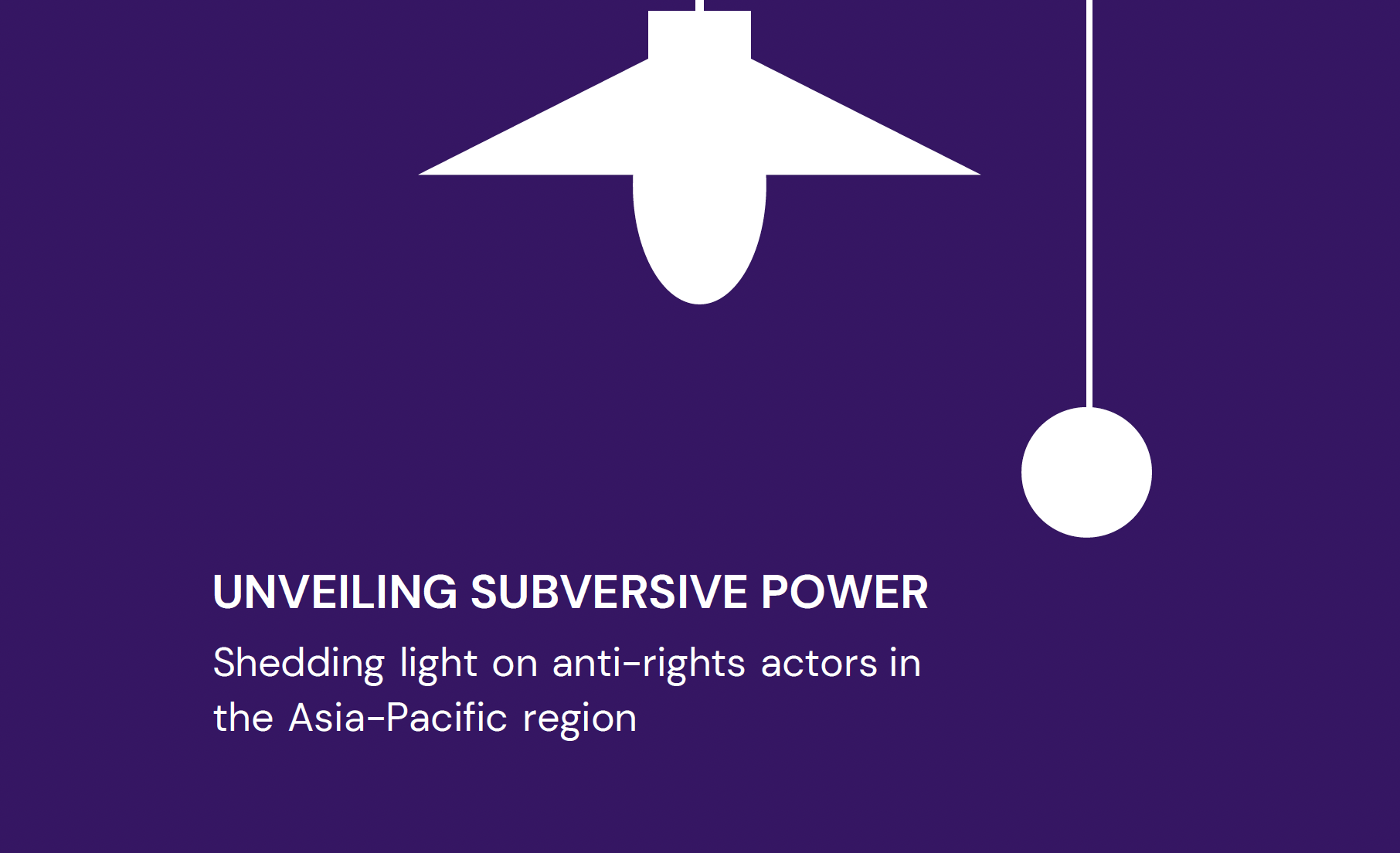
| 05 December 2024
Report: UNVEILING SUBVERSIVE POWER: Shedding light on anti-rights actors in the Asia-Pacific region
IPPF and Justice for Prosperity jointly conducted a rapid intelligence assessment of anti-rights opposition efforts in the Asia Pacific in order to better inform strategic responses to defend human rights and develop a counter strategy. The analysis focused on ten focal countries which have shown marked shifts and influence from the opposition: Vanuatu, Tuvalu, PNG, Fiji, Solomon Islands, Nauru, Indonesia, Malaysia, the Philippines, and Australia. In many cases, relationships and activities are intentionally manipulated. Ultra-conservative, traditionalist, religious actors are the ones who mostly drive this manipulation. To truly understand their power and influence, we must consider the anti-rights movement as a complete and interactive “trifecta” comprised of conservatives, populists and extremists/ influencers. Download the full report in the link above.

| 14 October 2024
IPPF in 2023: Financial Statements
We are a worldwide movement of national organizations working with and for communities and individuals. We are made up of over 119 Member Associations and 31 Collaborative Partners and work across 151 countries. Our work is wide-ranging, including comprehensive sexuality education, provision of contraceptives, safe abortion, maternal care and responding to humanitarian crises. We pride ourselves on being local through our members and global through our network. At the heart of our mission is the provision of – and advocacy in support of – integrated healthcare to anyone who needs it regardless of race, gender, sex, income and, crucially, no matter how remote. Download our 2023 Annual Report and Financial Statements below to learn about our work and impact worldwide.

| 26 September 2024
At a Glance: Our Key Achievements in 2023







